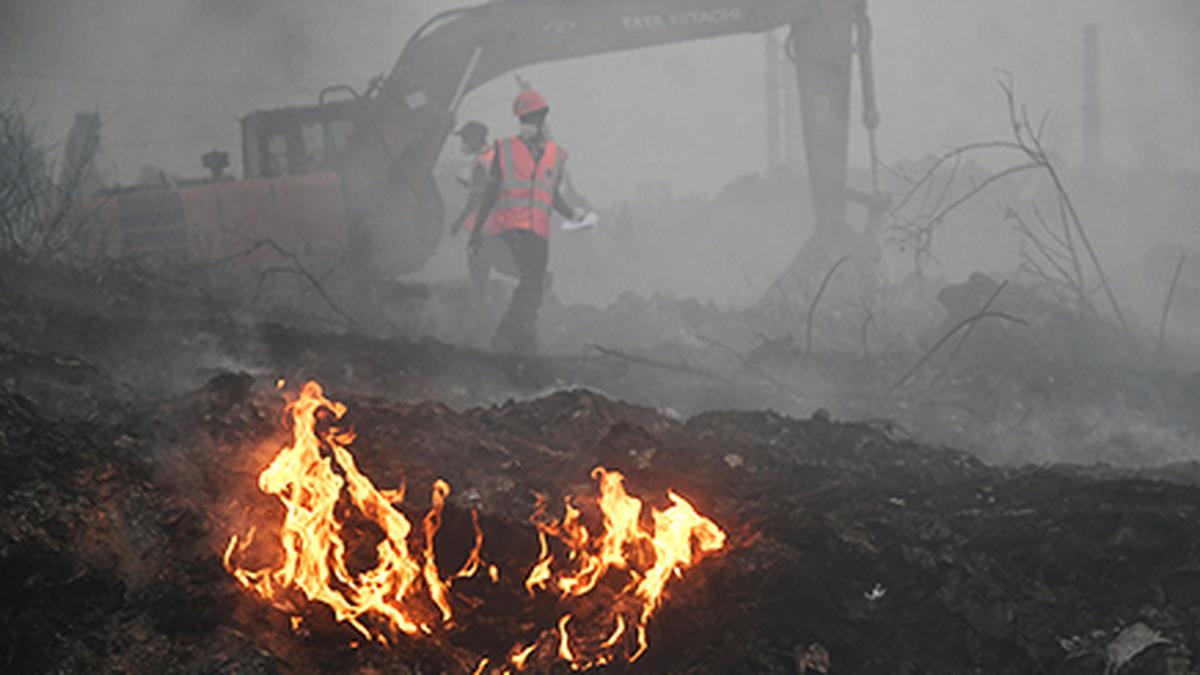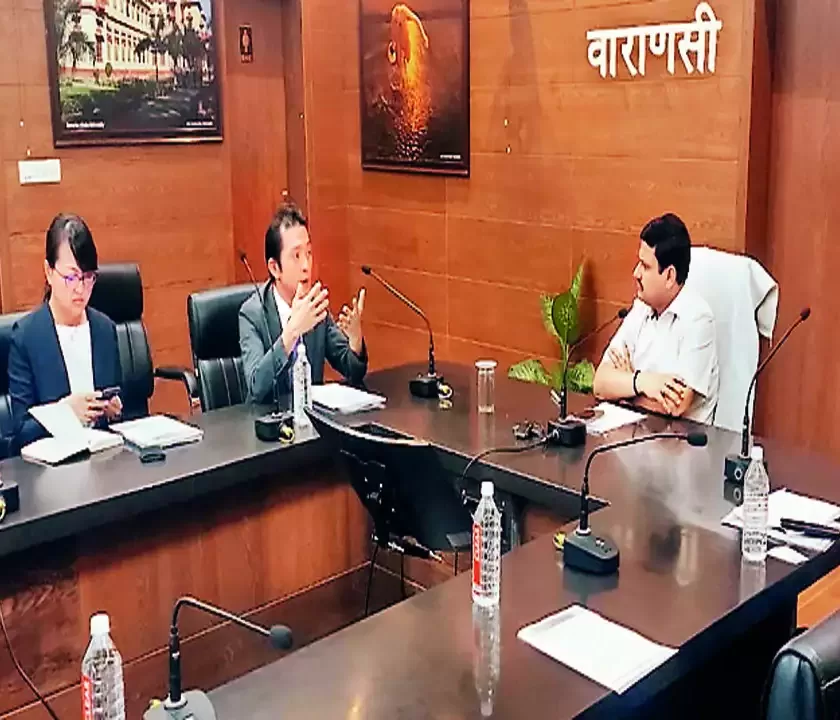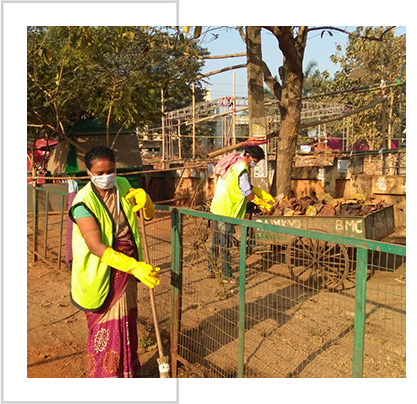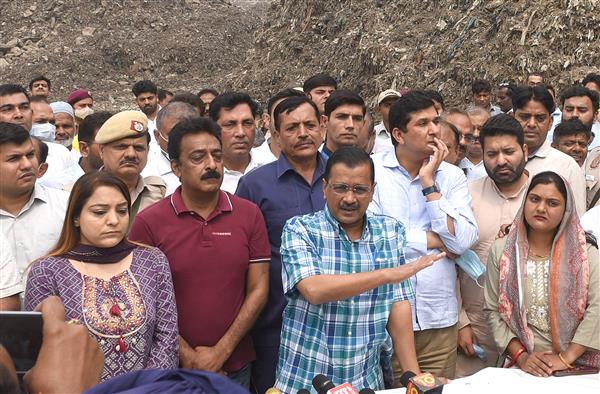Seven days on, toxic fumes from the blaze continue to choke residents of Kochi and neighbouring Alappuzha even as corruption in the plant’s management is alleged
Kochi is under watch as toxic emissions from the March 2 fire at the Brahmapuram waste treatment plant have reached as far as the neighbouring district of Alappuzha. The administration’s inability to contain the blaze at the plant, which is spread over 110 acres in the heart of the city, has put the spotlight on unscientific solid waste management.
Kerala is highly literate but when it comes to managing waste, the methods continue to be outdated. The fire at the Brahmapuram plant apparently broke out in the deep bed of plastic waste and has not been totally controlled even a week later. State fire and rescue personnel and the Indian Navy have been combating the smouldering waste but without total success.
With citizens of Kochi continuing to choke, Ernakulam district collector Renu Raj was, on March 8, transferred to Wayanad—a move thought to have been prompted by the fallout of the uncontrolled fire tragedy. Renu Raj had earlier appealed to the people to remain indoors as much as possible. Advisories were put out for people to not venture out and use face masks. The fire has deteriorated Kochi’s otherwise decent air quality to many times below the WHO safety limits.
The administration had launched a mammoth effort to douse the blaze, using 35 fire tenders—each having sprayed over 60,000 litres of water till date—120 fire personnel, two Navy helicopters, a fleet of bulldozers, two large dewatering pumps, and dozens of small water pumps. But the four-metre-deep plastic waste continues to burn and spread havoc in Kochi and Alappuzha.
The Brahmapuram waste treatment plant was set up in 2011 with a capacity to handle 250 metric tonnes of waste daily. Since 2012, it has been handling solid waste from the Kochi Corporation, the municipalities of Aluva, Angamaly, Kalamassery, Thrikkakara and Tripunithura, as well as two panchayats. The waste being handled is way above the plant’s installed capacity.
Brahmapuram is considered a classic example of nepotism and corruption in Kerala’s waste management system. In March 2020, government agencies had awarded the contract for managing waste in Kochi and other five corporations to the Bengaluru-based Zonta Infratech, owned by the son-in-law of a senior CPI(M) leader from Kottayam. This was after the National Green Tribunal ordered bio-mining of waste at the plant and setting up of waste energy plants in other municipal corporations in the state. Zonta Infratech was given Rs 11 crore as advance for bio-mining of waste dumped at Brahmapuram.





